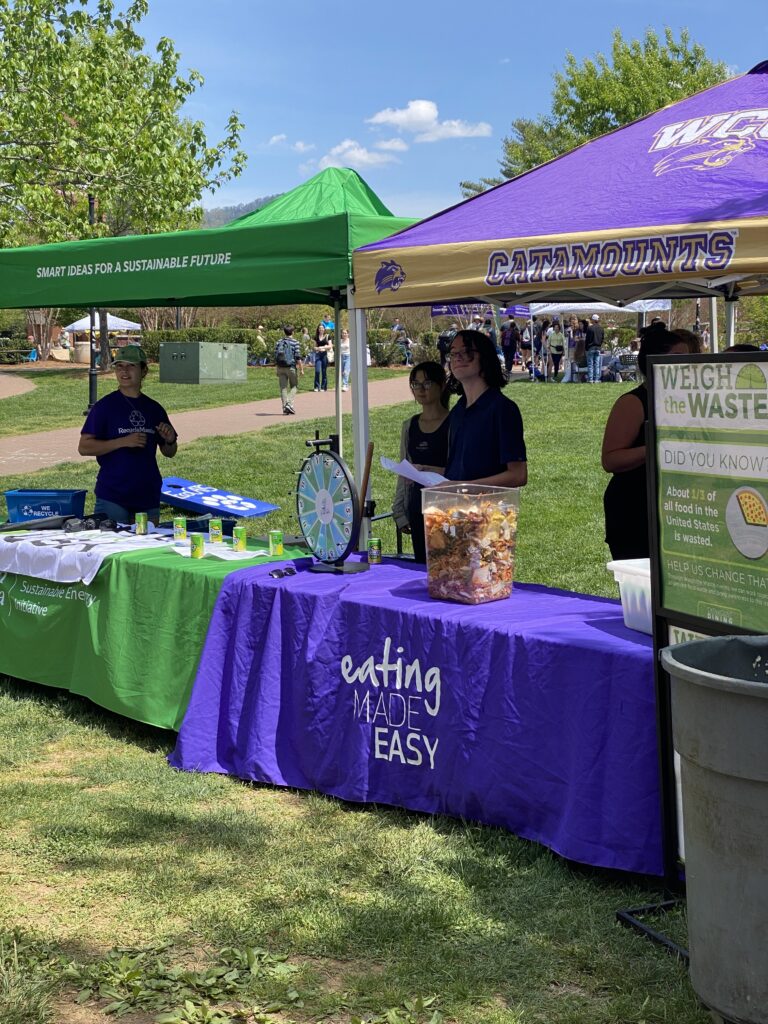WCU is in the heart of the Appalachian Mountains, making it a hot spot for college students that both enjoy nature leisurely and for their careers.
This was reflected in the “Earth Month” celebrations held by both Eco CATS and Sustainable Energy Initiative (SEI) rather than having just one day celebrating the planet.

On April 21 Eco CATS and WCU Office of Sustainability co-hosted a Weigh in the Waste event, where they stood outside of the Courtyard dining hall and collected the food waste coming out. Each student was offered to dump their food waste in a tub that slowly filled up garbage bins. At the booth were also games and free prizes for participants to draw in more students for the cause.
Tony Palmerio, the president of Eco CATS, saw the event as a good way to bring mindfulness.
“In the dining halls with the ‘all you can eat’ set up, people throw a lot of food away. Even when you’re there you can see half of the plates still full,” Palmerio said. “In all of America portion sizes are huge and most people don’t care.”
In the United States the average amount of food waste per year is about 30 to 40 % of the nation’s food supply according to the FDA . Outside of the dining hall they collected 90 lbs. of consumable waste and 8 of non-consumable waste from 540 people. This equals out to 2.8 ounces per person.
“I’m hoping for students to take something away from this,” said Palmerio. “When it’s just your plate it doesn’t seem like much, but when you see it pile up you can see the impact.”
These organizations are not the only ones that see the need for change on campus. Kyle Boudreau, a lab instructor at WCU, sees cause for genuine concern.
“Being a scientist, I trust in science. The Intergovernmental Panel on Climate Change (IPCC) is made up of the brightest minds in climate science, and their latest assessment released this year is alarming,” said Boudreau. “I think we are getting closer, faster, to surpassing the 1.5 C (celsius) limit they established in the early 2000s than was originally predicted. That is a cause for alarm.”
While tackling climate change can seem like a daunting task for any individual, Boudreau says that the more people who join in on the small changes the more effective it is overall.
“Simple things like conserving water by turning the faucet off when brushing your teeth can add up. Other things regarding CO2 emissions can be as simple as driving less, take the Cat Tram if you can, or maybe carpool if you are a commuter. Little things done by many can be more substantial than big things done by a few,” Boudreau said.
In the coming new academic year, Eco CATS hope to uphold their goals of promoting activism and to provide methods of reducing Western’s carbon footprint.



